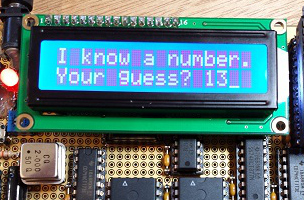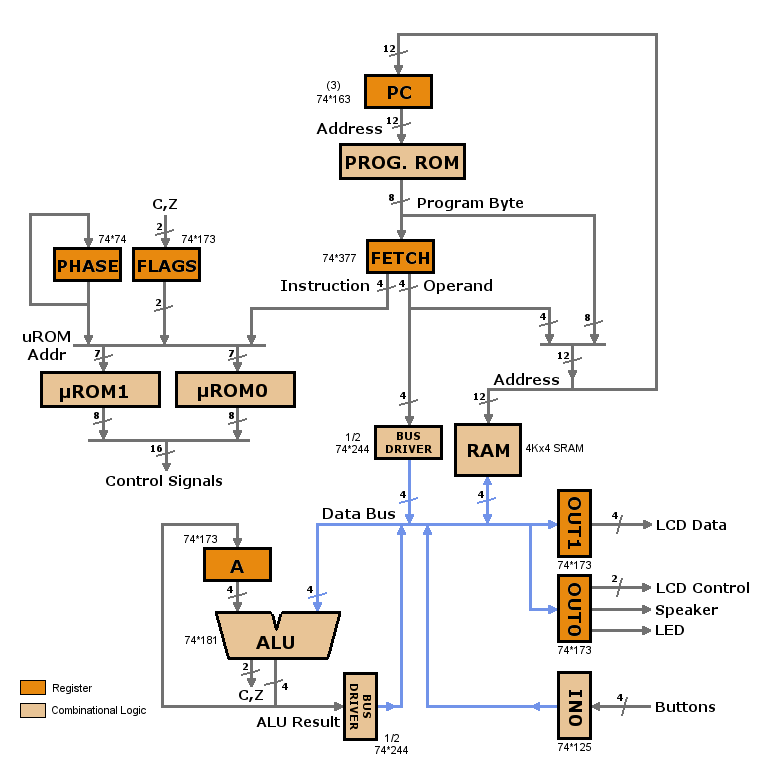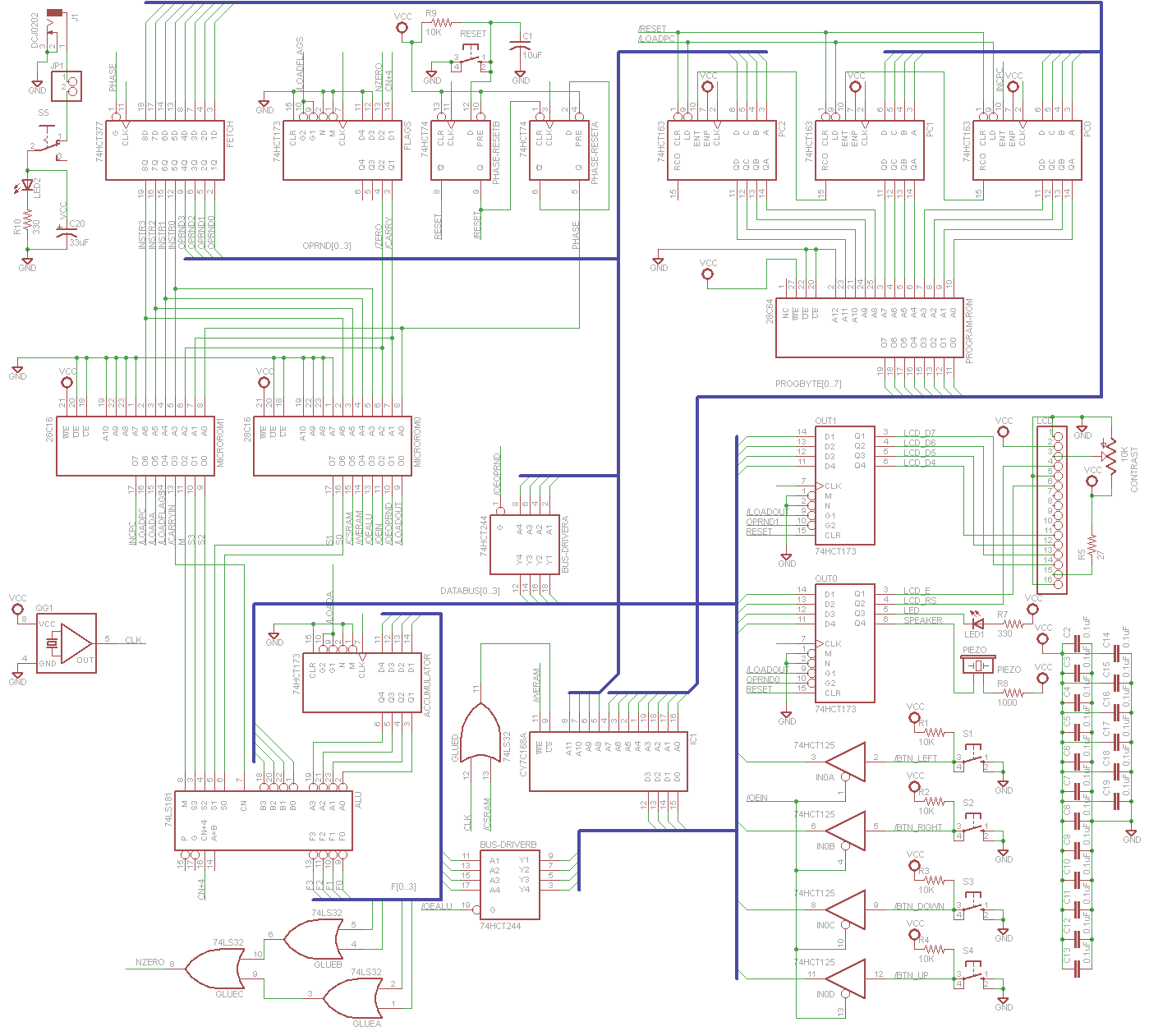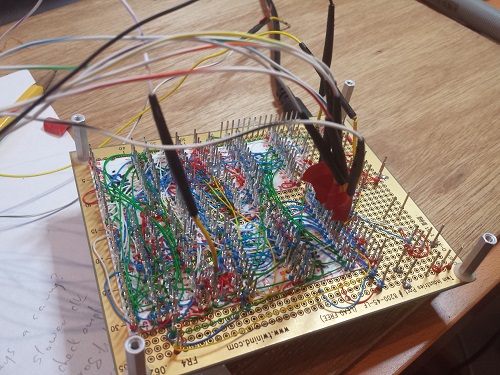Nibbler is a computer with 17 chips. With discrete TTL processor
 2 years ago they wrote about a home-made computer with a processor on separate integrated circuits - BMOW1 . From an architectural point of view, it was very advanced, but extremely difficult to repeat.
2 years ago they wrote about a home-made computer with a processor on separate integrated circuits - BMOW1 . From an architectural point of view, it was very advanced, but extremely difficult to repeat. The author of BMOW1 (Steve Chamberlin - Steve Chamberlin) has developed a Nibbler computer , consisting of only 17 chips. Moreover - the processor there is also assembled on discrete logic.
Well, let's see what's inside.
Architecture

Nibbler - 4-bit processor. 2 ROMs are used to store microcode, 1 ROM for command memory - 12 bit address, 8 bit command.
RAM - 12 bit address, 4 bit data. Arithmetic is considered standard ALU 74181 (our analogue of K155IP3).
Nibbler communicates with the outside world through a speaker, a standard HD44700 LCD text screen.
The clock frequency is 2 MHz, each command takes 2 clock cycles. Of course, the inability to write code to the memory imposes serious restrictions on the complexity of programs - but you have to sacrifice something to simplify the design. In addition, it is impossible to read / write memory at an arbitrary calculated address - because corny there are no registers of the required length.
A rare case when a computer circuit fits on one screen:

Design
Like BMOW, Nibbler is assembled by twisting wires, not soldering.
Compared to its predecessor:

Work video
I think it’s quite possible for everyone to assemble such a computer from discrete elements without spending half their life on it :-)
